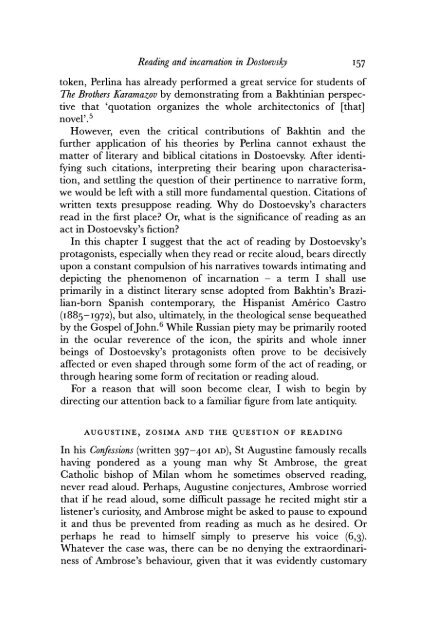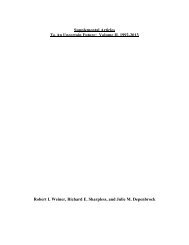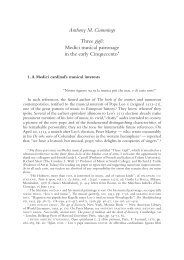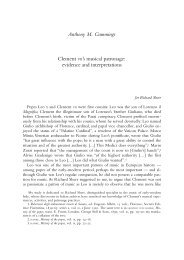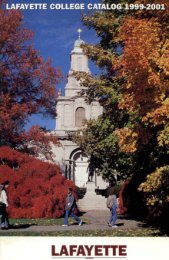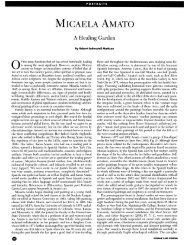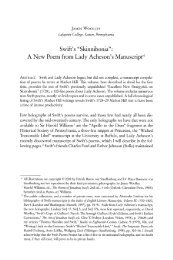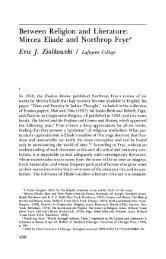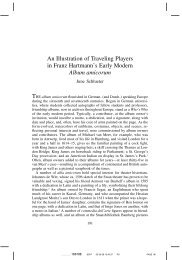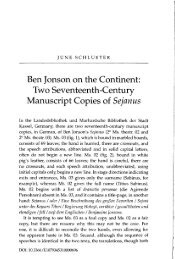Ziolkowski-Dost ... ianTradition-2001-p156.pdf
Ziolkowski-Dost ... ianTradition-2001-p156.pdf
Ziolkowski-Dost ... ianTradition-2001-p156.pdf
Create successful ePaper yourself
Turn your PDF publications into a flip-book with our unique Google optimized e-Paper software.
Reading and incarnation in <strong>Dost</strong>oevsky<br />
157<br />
token, Perlina has already performed a great service for students o f<br />
The Brothers Karamazov by demonstrating from a Bakhtinian perspective<br />
that ‘quotation organizes the whole architectonics o f [that]<br />
novel’.5<br />
However, even the critical contributions o f Bakhtin and the<br />
further application o f his theories by Perlina cannot exhaust the<br />
matter o f literary and biblical citations in <strong>Dost</strong>oevsky. After identifying<br />
such citations, interpreting their bearing upon characterisation,<br />
and settling the question o f their pertinence to narrative form,<br />
we would be left with a still more fundamental question. Citations of<br />
written texts presuppose reading. W hy do <strong>Dost</strong>oevsky’s characters<br />
read in the first place? Or, what is the significance o f reading as an<br />
act in <strong>Dost</strong>oevsky’s fiction?<br />
In this chapter I suggest that the act o f reading by <strong>Dost</strong>oevsky’s<br />
protagonists, especially when they read or recite aloud, bears directly<br />
upon a constant compulsion o f his narratives towards intimating and<br />
depicting the phenomenon o f incarnation - a term I shall use<br />
primarily in a distinct literary sense adopted from Bakhtin’s Brazilian-born<br />
Spanish contemporary, the Hispanist A m érico Castro<br />
(1885-1972), but also, ultimately, in the theological sense bequeathed<br />
by the Gospel o f John.6 W hile Russian piety may be primarily rooted<br />
in the ocular reverence o f the icon, the spirits and whole inner<br />
beings o f <strong>Dost</strong>oevsky’s protagonists often prove to be decisively<br />
affected or even shaped through some form o f the act o f reading, or<br />
through hearing some form o f recitation or reading aloud.<br />
For a reason that will soon become clear, I wish to begin by<br />
directing our attention back to a familiar figure from late antiquity.<br />
AUGUSTINE, ZOSIMA AND THE QUESTION OF READING<br />
In his Confessions (written 397-401 a d ), St Augustine famously recalls<br />
having pondered as a young man why St Ambrose, the great<br />
Catholic bishop o f M ilan whom he sometimes observed reading,<br />
never read aloud. Perhaps, Augustine conjectures, Ambrose worried<br />
that if he read aloud, some difficult passage he recited might stir a<br />
listener’s curiosity, and Ambrose might be asked to pause to expound<br />
it and thus be prevented from reading as much as he desired. O r<br />
perhaps he read to himself simply to preserve his voice (6,3).<br />
W hatever the case was, there can be no denying the extraordinariness<br />
o f Am brose’s behaviour, given that it was evidently customary


